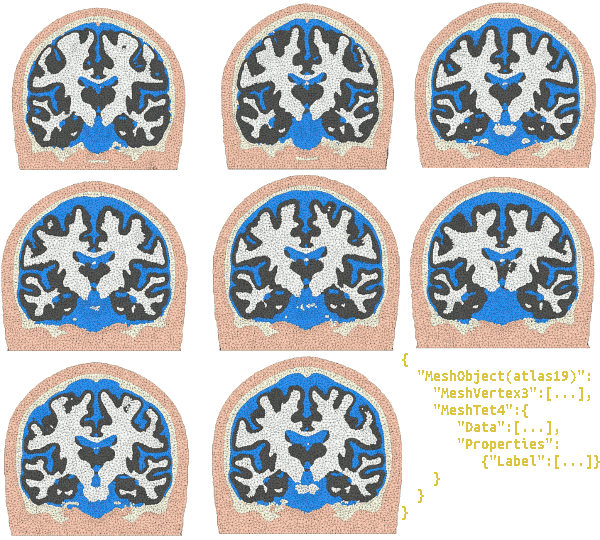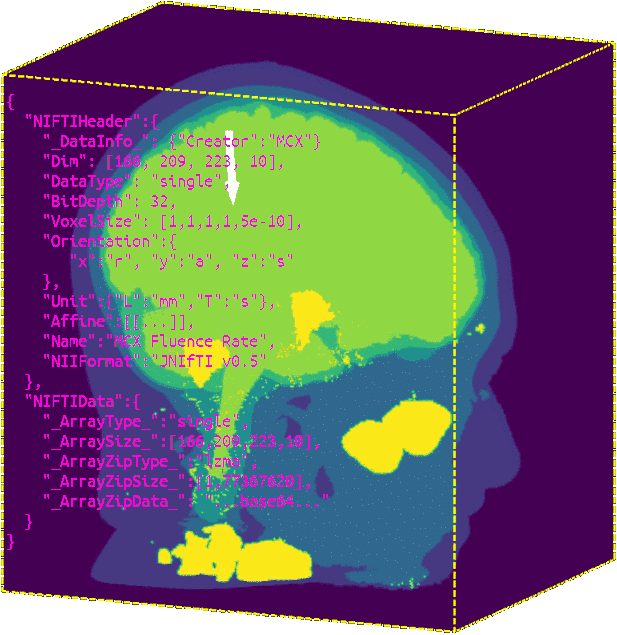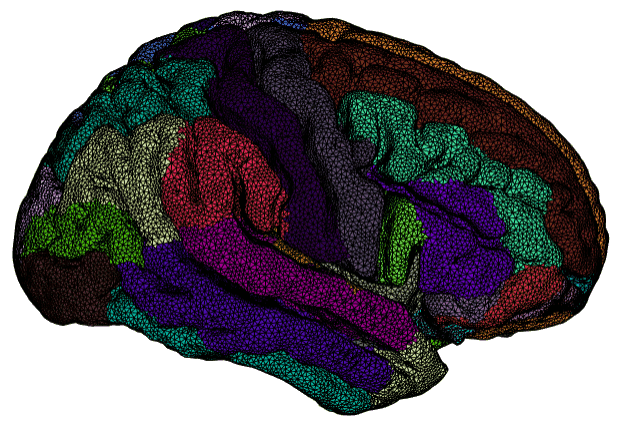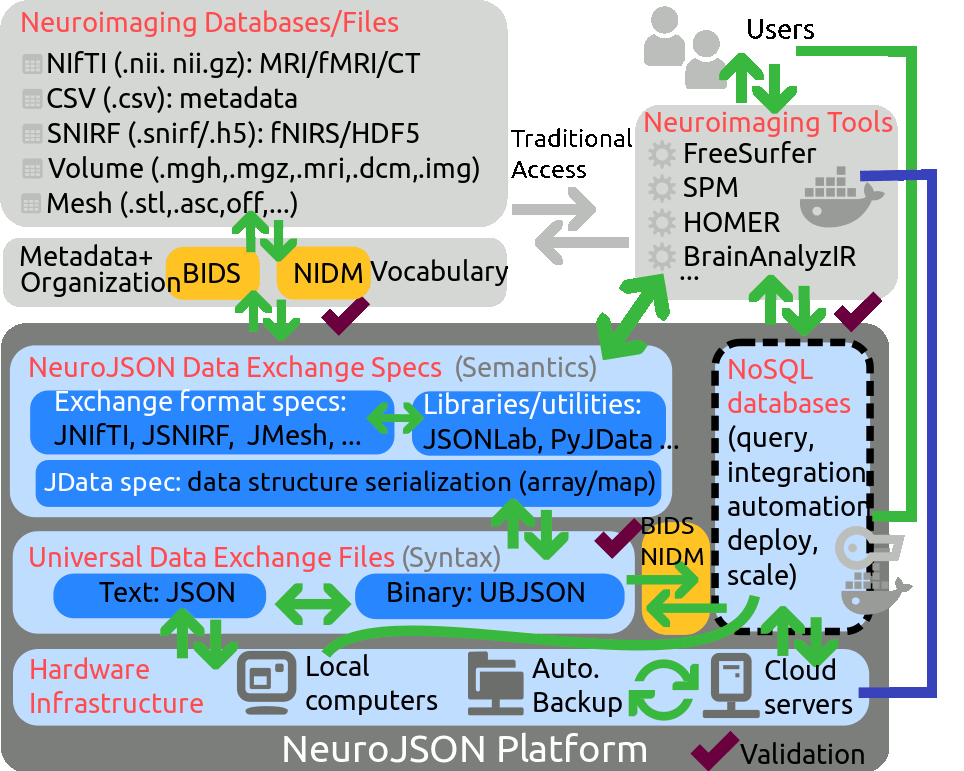Data Structure Level
JData Specification
BJData Specification
Data File Level
JNIfTI Specification
JSNIRF Specification
JMesh Specification
Dataset Level
BIDS-REST
Specifications
- List of Format Specifications
Click on each specification on the left to read more.
JData: A general-purpose data annotation and interchange format
JData is a general-purpose data interchange format aimed for portability, readability and simplicity. It utilizes the JavaScript Object Notation (JSON) [RFC4627] and Universal Binary JSON (UBJSON) specifications to store complex hierarchical data in both text and binary formats. In this specification, we define a list of JSON-compatible constructs to store a wide range of data structures, including scalars, arrays, structures, tables, hashes, linked lists, trees and graphs, and support optional data grouping and metadata for each data element. The generated data files are compatible with JSON/UBJSON specifications and can be readily processed by most existing parsers.URL: https://github.com/NeuroJSON/jdata
Version: 1.0 Draft 3
Binary JData: A portable interchange format for complex binary data
The Binary JData (BJData) Specification defines an efficient serialization protocol for unambiguously storing complex and strongly-typed binary data found in numerous application domains. The BJData specification is the binary counterpart to the JSON format, both of which are used to serialize complex data structures supported by the JData specification (http://openjdata.org). The BJData spec is derived and extended from the Universal Binary JSON (UBJSON, http://ubjson.org) specification (Draft 12). It adds supports for N-dimensional packed arrays and extended binary data types.URL: https://github.com/NeuroJSON/bjdata
Version: 0.5 Draft 1
JNIfTI: An extensible file format for storage and interchange of neuroimaging data
JNIfTI is a highly extensible file format developed for the storage, interchange and processing of neuroimaging data. Built upon the JData specification, a JNIfTI file has both a text-based interface using the JavaScript Object Notation (JSON) [RFC4627] format and a binary interface using the Universal Binary JSON (UBJSON) serialization format. This further allows JNIfTI to store not only neuroimaging data formatted in the NIfTI-1, NIfTI-2, and Analyze7.5 specifications, but also non-array-based and complex data structures, such as neuroimaging metadata, using simple syntax. To enhance accessibility, JNIfTI files can be directly parsed by most existing JSON and UBJSON parsers.URL: https://github.com/NeuroJSON/jnifti
Version: 1.0 Draft 1
JSNIRF: A lightweight and portable fNIRS data storage format
JSNIRF is a portable format for storage, interchange and processing data generated from functional near-infrared spectroscopy, or fNIRS - an emerging functional neuroimaging technique. Built upon the JData and SNIRF specifications, a JSNIRF file has both a text-based interface using the JSON format and a binary interface using the Universal Binary JSON (UBJSON) serialization format. It contains a compatibility layer to provide a 1-to-1 mapping to the existing HDF5 based SNIRF files. A JSNIRF file can be directly parsed by most existing JSON and UBJSON parsers.URL: https://github.com/NeuroJSON/jsnirf
Version: 0.4
JMesh - A versatile data format for unstructured meshes and geometries
JMesh is a portable and extensible file format for the storage and interchange of unstructured geometric data, including discretized geometries such as triangular and tetrahedral meshes, parametric geometries such as NURBS curves and surfaces, and constructive geometries such as constructive solid geometry (CGS) of shape primitives and meshes.URL: https://github.com/NeuroJSON/jmesh
Version: 1.0 Draft 1
BIDS-REST
To be announced
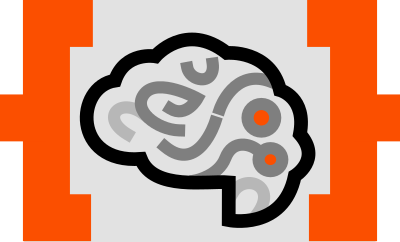 NeuroJSON
NeuroJSON![[Home]](upload/neurojson_banner_plain.png)
